In Photos: Quadriplegic Uses Mind-Controlled Prosthesis
Using Her Mind

Jan Scheuermann, 53, of Whitehall Borough, has quadriplegia for more than nine years and is participating in a trial testing brain computer interface technology that allows her to move a robot arm with her thoughts.
Eating Chocolate
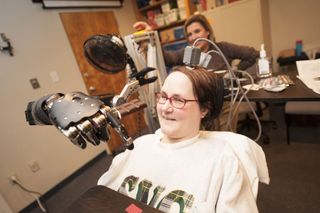
Jan Scheuermann, who has quadriplegia, brings a chocolate bar to her mouth using a robot arm she is guiding with her thoughts. Research assistant Elke Brown, M.D., watches in the background.
Mind Control
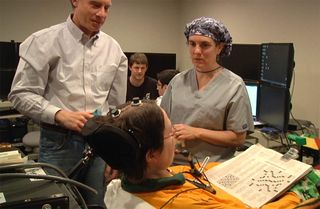
Researchers Andrew Schwartz, Ph.D., and Elizabeth Tyler-Kabara, M.D., Ph.D., talk with Jan Scheuermann. Research assistants John Downey (facing camera) and Brian Wodlinger, Ph.D., chat in the background.
Reaching Out
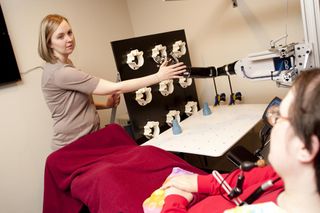
Jan Scheuermann reaches out with the thought-controlled robot arm to touch the hand of researcher Jennifer Collinger, Ph.D.
Stacking Cones
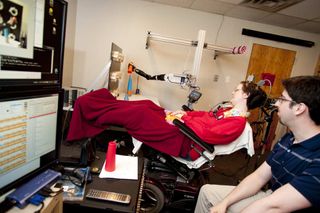
Scheuermann stacks cones with a mind-controlled robot arm. Research assistant Brian Wodlinger, Ph.D., watches her work.
The Hand
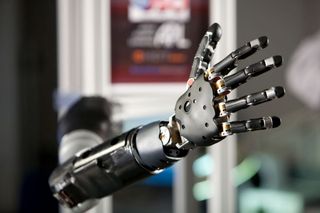
the prosthetic arm, designed by the John Hopkins University's Applied Physics Laboratory (JHU/APL) and funded by the U.S. Department of Defense's Defense Advanced Research Projects Agency (DARPA).
Sign up for the Live Science daily newsletter now
Get the world’s most fascinating discoveries delivered straight to your inbox.











